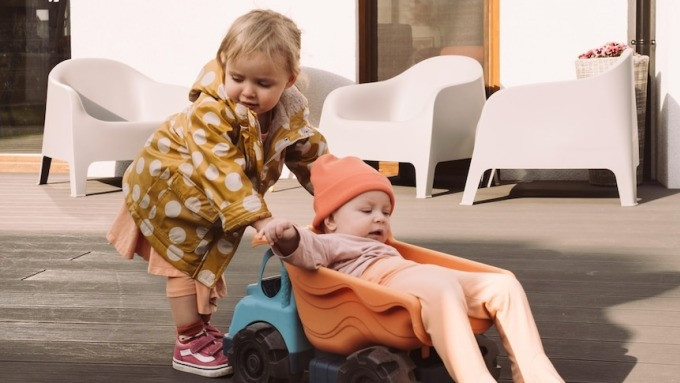The best interval between births is 27-32 months, if it is closer it can cause stress for parents, if it is further it can be bad for the mother's health.

Illustration
Psychologist Dr. Justin Coulson, parenting expert on Channel Nine's "Parental Guidance" program (Australia), conducted a study to find the answer to the question "What is the ideal age gap between children?".
He has six children, ranging in age from 14 months to 4.5 years. From what he has observed in working with families and his own children, he has found that larger age gaps tend to work better.
Justin Coulson says that parents with children closer in age tend to be much more tired and less able to invest their full attention because they are exhausted and drained of resources. Whereas if they have children spaced out, parents place less demands on themselves, have higher emotional capacity, and therefore perform better and their children receive more attentive care.
The advantage of having children close in age is that they become friends. Parenting is easier because you can teach them the same concepts at the same time. However, they will fight a lot instead of giving in. For children with an age gap of more than 5 years, the older child can be more helpful to the younger child, thus reducing overall stress for you as a parent.
However, Dr Coulson said that each family has different conditions, so there are many factors that contribute to narrowing the age gap between children. He also emphasized that the happiness of the parents is the most important thing, so the quality of the relationship between husband and wife should also be considered.
In another study, American psychologist Cara Goodwin pointed out that an age gap of 27-32 months between children can bring the best physical and mental health results for both mother and child.
"In terms of sibling relationships, siblings who are close in age tend to fight more but are also closer to each other, which can have positive benefits for social skills," the expert said.
From a medical perspective, experts advise against having children with too large an age gap. This is directly related to the mother's health. Researchers say that longer intervals between pregnancies can have negative effects because the mother's body will gradually lose its state of preparation for pregnancy after giving birth. Mothers who do not conceive for many years after their previous birth may have health risk factors, causing fertility problems, and even the possibility of complications during subsequent pregnancies and deliveries.
Meanwhile, Rachael Sharman, a senior lecturer in psychology at the University of the Sunshine Coast, said people really needed to think about their resources, both money and time, and take into account the time a mother has to recover from pregnancy and breastfeed before deciding to have another child.
According to VnExpress